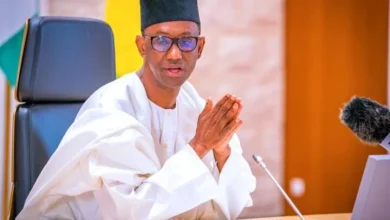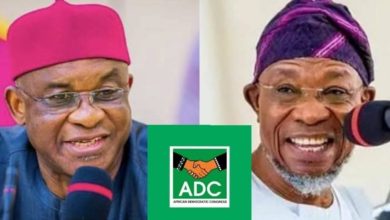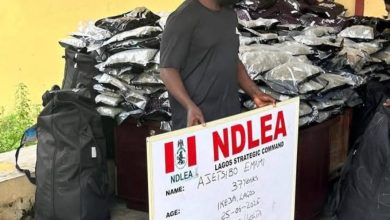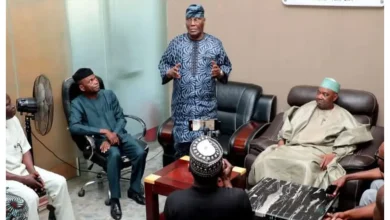Peter Obi Slams Tinubu Over Rising Debt, Lack of Development Progress
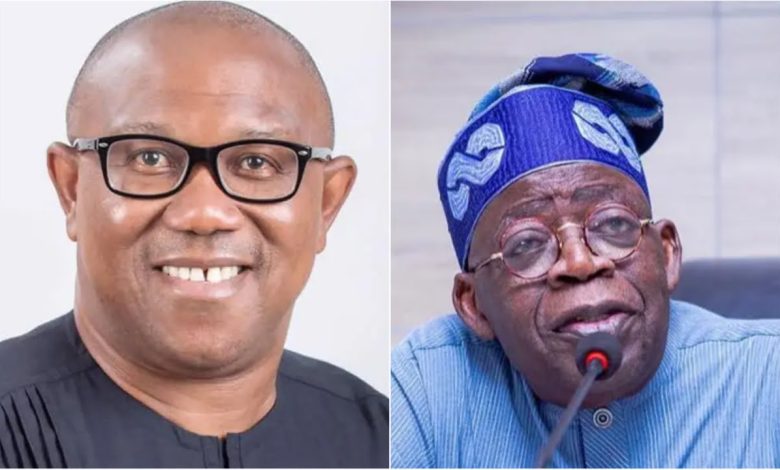
President Bola Tinubu has been accused by Peter Obi, the 2023 Labour Party presidential candidate, of taking on excessive debt without producing any infrastructure to support it.
Obi bemoaned the possibility that the rising debt profile in Nigeria under President Tinubu might jeopardize the future of future generations and degrade the living conditions of millions of Nigerians, while also expressing profound concern about the situation.
According to a report, the former governor of Anambra State specifically mentioned the recent approval by the Nigerian Senate of ₦750.98 billion in domestic bond issuance, a €65 million grant, and an additional $21 billion, €2.2 billion, and ¥15 billion in external borrowing for the fiscal cycle of 2025–2026 in a post published on his 𝕏 account on Tuesday.
According to the most recent data, Nigeria’s total debt is currently over ₦187 trillion, and there are worries that it could surpass ₦200 trillion by the end of 2025.
An additional $21 billion, €2.2 billion, and ¥15 billion in external borrowing for the fiscal year 2025–2026 was approved by the Nigerian Senate on July 22, 2025. Additionally, it authorized the issue of a €65 million grant and a N750.98 billion domestic bond. Together with the approximately N37.2 trillion in sanctioned loans, our current total debt stands at approximately N187 trillion, with the public debt currently standing at approximately N149.39 trillion as of the first quarter of 2025. There are worries that this amount could surpass N200 trillion by the end of 2025.
Our GDP was approximately N269.2 trillion (almost $180 billion) before to rebasing, thus the government has borrowed the equivalent of almost 70% of that amount. Even with the rebasing, which increased our GDP to roughly N372.8 trillion (roughly $243. 7 billion), the government would have borrowed roughly 51.16 percent of the new GDP (with the approved loans), the highest debt-to-GDP ratio in our country’s history.
“Although there has been an increase of roughly N27.72 trillion year over year and N4.72 trillion quarter over quarter, we are building up extremely high amounts of unmanageable debt with little to show for it in vital sectors like healthcare, education, electricity generation, property and life security, and lifting people out of poverty.”
“On all significant measures of human development, we continue to score poorly. While healthcare is still out of reach for millions of Nigerians, especially the poor, education is underfunded and standards are constantly falling. Between May 29th, 2023, and May 29th, 2025, 672 villages were sacked and over 10,217 people were killed, indicating a decline in life and property security despite a considerable increase in security spending from N2.98 trillion in 2023 to N4.91 trillion in 2025. There is also widespread infrastructure deterioration; over 135,000 km of our 195,000 km of roads are still unpaved, mostly impassable, and unusable. There is a similar dire state of affairs in practically every area of the economy, with the electricity sector serving more than 200 million Nigerians with fewer than 5,000 MW.
We are still facing depressing news of growing poverty, with approximately 133 million (63%) Nigerians classified as multi-dimensionally poor, rising unemployment, and tragic news like 652 children dying as the malnutrition crisis worsens in Northern Nigeria, more than two years after the current government took office and with all the massive borrowing.
The Doctors Without Borders organization, Médecins Sans Frontières (MSF), has recently raised the alarm about a growing malnutrition epidemic in Northern Nigeria, with Katsina State emerging as one of the most severely affected locations.
Even though this nation is endowed with a wealth of resources, no one should go hungry at night. However, a chronic lack of leadership has pushed most of our folks into a growing state of multifaceted poverty,” he stated.
Read Also: Reno Omokri to Critics: Lagos Belongs to Someone, Not Nigeria’s Former Capital
The administration of President Bola Tinubu has not demonstrated any evidence of economic restraint, and Peter Obi acknowledged that borrowing might not be entirely bad if it were directed toward high-impact, productive expenditures with clear and quantifiable results.
In his call for economic change, he urged the government to prioritize investments in human capital, stop income leaks, and reduce unnecessary spending.
If borrowing can be sustained and linked to profitable ventures with quantifiable results, it is not always a bad thing. Unfortunately, the way we currently borrow money without transparency, accountability, or transformative impact is just mortgaging our children’s future. In addition to showing at least some regard and interest in the future of young and unborn Nigerians, the government should take into account the intergenerational effects of its unsustainable borrowing.
We must revert to a culture of economic management that is methodical and cautious, reducing the expense of governance, preventing leaks, investing in human resources, and creating a productive economy. Nigeria cannot keep making careless borrowing decisions as poverty increases and public confidence declines.
This financial irresponsibility must end. To achieve sustainable and equitable development and progress, we need to create a New Nigeria where people are at the center of development, leadership is accountable, and every kobo borrowed or spent has a quantifiable impact.
“It is possible for Nigeria to change,” he said.

